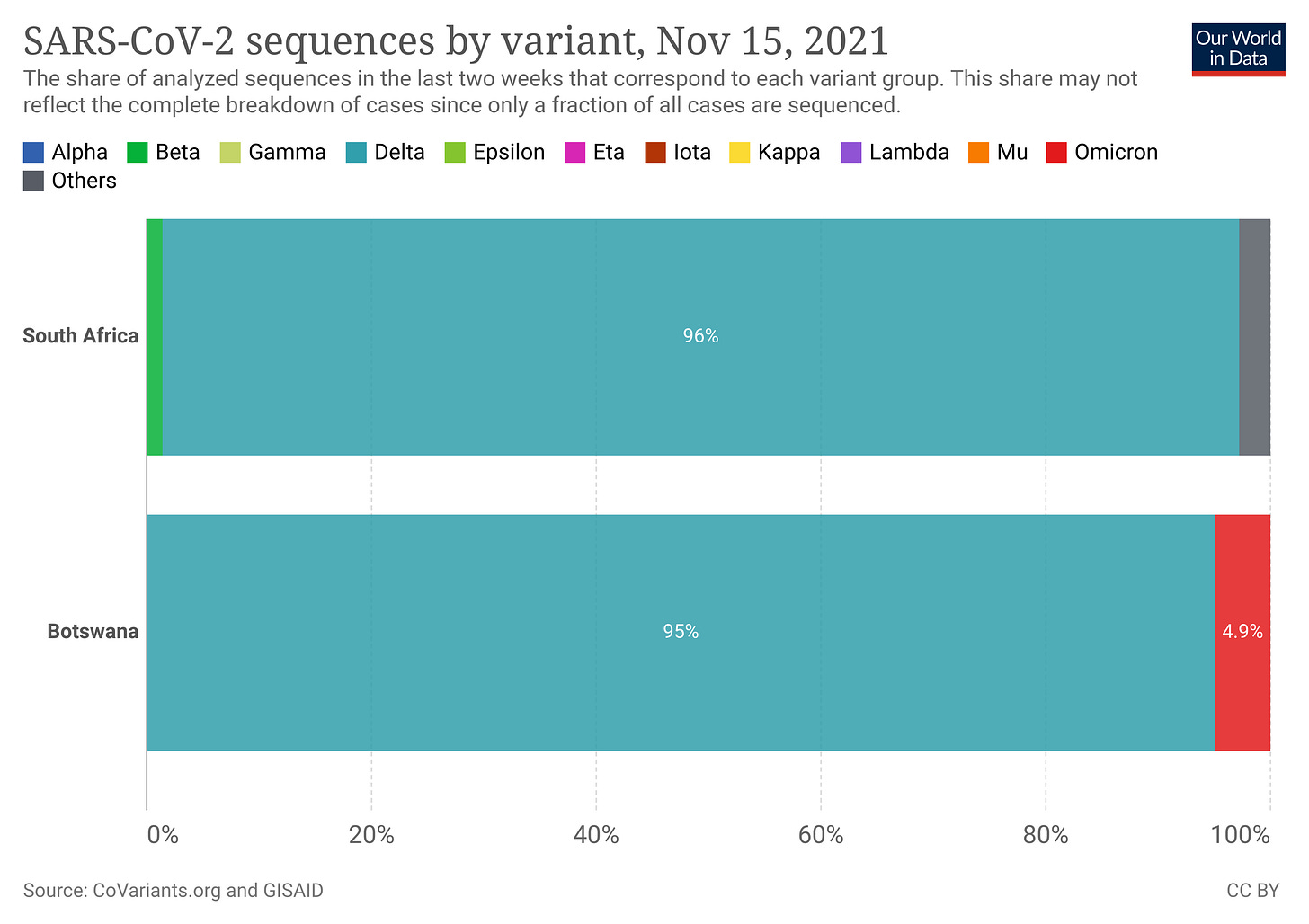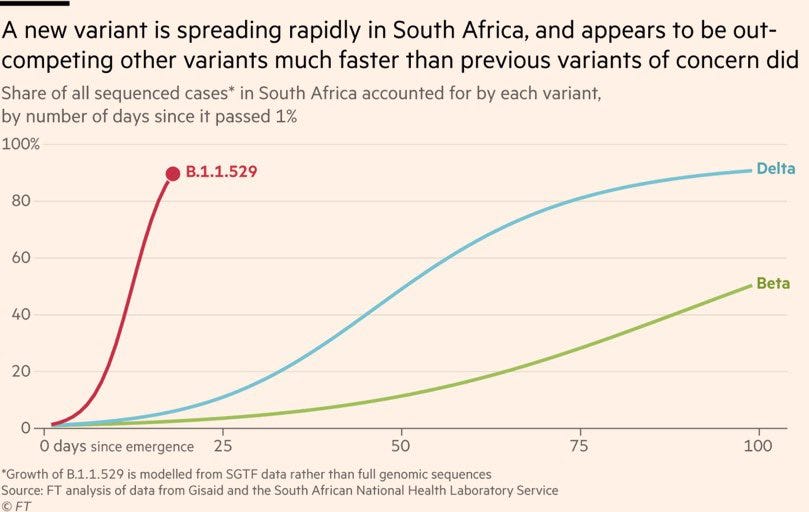Beware Imperial College London Predictions
Neil Ferguson And Company Make A Habit Of Being Totally Wrong
Imperial College London makes yet another absurd COVID claim.
Imperial College is where Neil Ferguson kick-started the pandemic panic last year with his incompetently coded computer models predicting a coronapocalypse if draconian lockdowns weren't instituted immediately. He was subsequently forced to downgrade his predictions by 90%—coincidentally, just four days after I pointed out on Twitter that his computer model's “thousands of lines of undocumented C” was a recipe for disaster.
Now his colleague Wendy Barclay picks up the baton.
Prof Wendy Barclay, at Imperial College London, said: “It will be several weeks before we have answers. We have no evidence that it’s causing any more severe disease but we know it is transmitting well.”
With No Local Transmission, How Is Omicron “Transmitting Well”?
As of this writing, the UK has two cases of Omicron, both travel related, and zero cases attributed to local transmission. Belgium, the Netherlands, Australia, Canada, Israel, and Hong Kong have also reported travel related cases, but no locally transmitted ones.
How, then, is Omicron “transmitting well”? More precisely, how can one claim to know it is transmitting well?
Outside of South Africa, Omicron has yet to show itself to be “transmitting well”. Even in South Africa, how well it is transmitting is not entirely clear.
As of November 15, Botswana's COVID cases were just under 5% Omicron, and South Africa had yet to report any appreciable numbers of cases.
As of November 26, Omicron cases were predominantly in South Africa's Gauteng Province--and amounted to all of 77 cases.
That, apparently, is the Imperial College London's definition of “transmitting well.”
From Speculation To Hysteria
From those 77 cases we get fancy charts like this one from the Financial Times and shared on Twitter by Eric Feigl-Ding, himself noted for hysterics over COVID-19 (he's claiming Omicron is 500% more transmissible):
From those 77 cases comes the impetus to ban travel from South Africa and its neighbors.
From those 77 cases all this is extrapolated.
Reality Check: Very Little Is Known About Omicron
As I detailed the other day, not much is known about the Omicron variant.
It “may” negate the Big Pharma inoculations--and it has been reported that the first four cases were among the inoculated--but the data is still very much in a preliminary state.
According to a public statement by the Botswana government, the new Omicron mutation was first discovered in four people who had received both doses of the COVID vaccine. Meanwhile, South Africa’s medical chief Dr. Angelique Coetzee said that she had only seen “very very mild cases” of the variant so far.
That same reporting also describes Omicron cases as very, very, mild”. This much is actually not entirely speculation, as South African Doctor Barry Schoub provides some confirmation on this point:
“The cases that have occurred so far have all been mild cases, mild-to-moderate cases, and that’s a good sign,” said Schoub, adding that it was still early days and nothing was certain yet.
It is one thing to take precautions, even extraordinary precautions. It is quite another to launch into full blown hysteria on the basis of scant and incomplete data.
Just as they did last year, Imperial College London is leading the UK (and the world) down a path of wild speculation and hysteria.
Update: Portugal May Have Local Transmission
When I first wrote this article last night, there were no reported cases of local transmission. As of this morning that may no longer be the case. 13 members of a Portuguese soccer team tested positive for presumably the Omicron variant, but only one has recently been to South Africa.
Preliminary tests taken after the match “strongly suggest that all 13 cases associated to Belenenses players are linked to the Omicron variant of concern,” Portugal’s national health institute said in a statement.
The infections came after defender Cafu Phete recently returned from South Africa, where the Omicron variant was first identified, the team and officials said.
The other players had not traveled there, indicating that this may be one of the very first cases of local transmission of the variant outside the countries where it was initially detected.
At this time, local transmission is likely but not definitively confirmed. Thus far, no other cases of local transmission have been reported in the media.
This is an opportunity to emphasize a point that is easily overlooked: local transmission will happen. Community spread will happen. That much is fairly certain.
What is uncertain is how rapidly local transmission will occur, and how successful it will be. These are important aspects of “transmitting well”, or “transmitting not-well”.
Even though we likely are seeing local transmission in Portugal, until there are substantial numbers of locally transmitted cases, the answers to the questions of speed and success will remain unknown. Assuming what the answers will be is the polar opposite of following the data.
Even with plausible evidence of local transmission in hand, Imperial College London is still leading the UK (and the world) down a path of wild speculation and hysteria.





